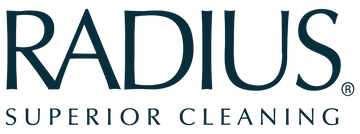In the past four years, Radius has seen 50 percent growth in sales of its toothbrushes outside the U.S., driven largely by high demand in Asia for its toddler toothbrush and demand for its adult toothbrushes in Europe.
The secret to Kutztown-based Radius' success has been the redesign of the classic toothbrush, from the handle's ergonomics to the bristle material and alignment to make a better product, President and CEO Saskia Foley said.
"It's the evolution of a product," she said.
Outside of U.S.
Radius, which was begun in 1983 by Foley's father, is doing 14 percent of its total sales outside the U.S. in places as close as Canada and as far away as Russia and Korea. Its foreign business has been growing so fast that last year Foley hired an international sales manager. With a dedicated professional to handle international sales, Radius is aiming for 75 percent growth outside the U.S., Foley said.
Pennsylvania companies exported $40.9 billion in 2013, or 5 percent more than the previous year, according to the U.S. Department of Commerce's International Trade Administration. Companies in the Reading metropolitan statistical area, which includes all of Berks County, exported about $1.7 billion worth of goods in 2013, or 50 percent more than in 2009. The Reading metro area accounts for 4.2 percent of Pennsylvania's exports, in dollar value.
"We really focus on the natural channel and that's caused a lot of other countries to come over and look at that, which causes them to then buy more," Foley said of the drivers behind Radius' success. "Part of it is the Made in USA thing, because they're looking for those quality American-made products."
That's part of Radius' whole package. The company focuses on using natural or recycled materials for their brushes, and the redesign helps to improve the experience of brushing, she said.
However, a lot of the companies who export are doing so in small quantities.
Reading Plastic
Reading Plastic exports just one part, to one customer in Sweden. It's a lid for a mechanical sorting machine made by Wave Biotech, a General Electric subsidiary, which scans objects for germ contamination.
"So many of our parts we get to go and see it assembled on the finished product," said Tim Long, Reading Plastic's vice president of sales. But that's a little difficult with a part shipped to Sweden.
That part is an outlier compared with most of Reading Plastic's other business. It mostly makes plastic parts that stay inside the U.S. to be built into larger manufactured goods. At one time, even the parts for Wave Biotech remained in-country. Prior to its acquisition by GE, Wave Biotech manufactured its machines in New Jersey.
"They stuck with us even though they're getting just that one item," Long said.
Eagle Brass
Often the exporting companies, such as Eagle Brass in Leesport, are dealing in small quantities of parts for other manufacturers. Eagle's exporting accounts for less than 5 percent of its business, President Charlie Bernard said.
"We mostly have a passive effort outside the U.S.," he said.
Eagle is a metals rerolling facility that takes coils of sheet brass, stainless steel and other metals and resizes them to meet the needs of industrial stampers making small parts for electrical connectors or other machinery.
For example, Bernard said, Eagle supplied a Massachusetts company that made fuses for coffee pots. That company was bought out and moved overseas. Eagle makes the metal rolls that are shipped to the company for the fuse materials. Much of its rolls going overseas are for smaller, specialized parts, so the company isn't shipping thousands of tons of metal overseas.
Over time, its export business has grown. Technology has played an important part in that.
"The Internet helps people like us, small companies," Bernard said. "It helps people find us."
The Internet's speed and ease of communication helps Radius, too, Foley said. She gets people from Korea who are willing to pay as much as $80 in shipping for a toothbrush, but Radius uses a distributor to sell to those customers.
Even those companies who do smaller amounts of export business want to grow in years to come.
"We need to have a presence overseas," Bernard said. "We have a number of ways of doing things that are not ubiquitous."
For example, in Europe there could be opportunities for Eagle Brass to fill a niche for a smaller intermediary metals roller, he said.
Right now, the key is growth where the company can find it, whether that's supplying domestic manufacturers or foreign orders, he said.
Growth is key
Growth is the key for Reading Plastic, too. It hit 25 percent growth in 2014 and the company wants that to continue. But foreign sales aren't necessarily at the top of its list at the moment. Considering it has supplied companies in Singapore and Mexico in the past, there are good opportunities for them to do more exporting in coming years, he said.
"We've done enough of it so we understand the issues," Long said. "So we welcome that international business."
Contact Jim T. Ryan: money@readingeagle.com.
